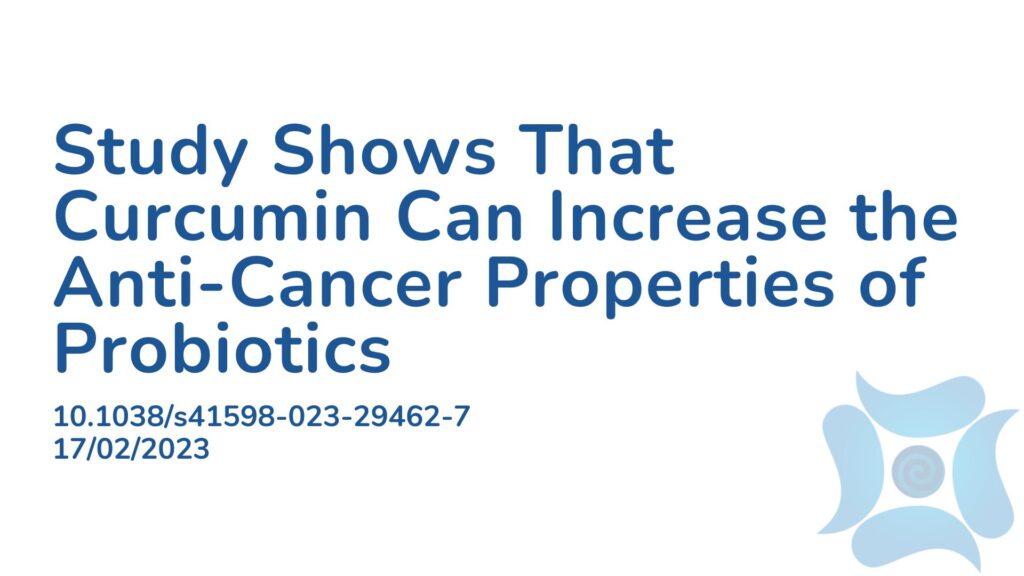Summary:
Although there has been substantial advances in the understanding, diagnosing and treatment of cancer, the prevalence of this condition is still high. According to epidemiological data, rates of colorectal cancer are predicted to rise within the next 10-20 years. Nutrition plays a critical role in cancer prevention as the digestive ecosystem contains micro-organisms that can benefit or be harmed by food. The Lactobacillus bacteria is one of the most common types of probiotics in the intestines and has been shown to have anti-cancer properties due to being anti-proliferative. The purpose of this paper was to see if curcumin, when combined with probiotics, affected the anti-cancer activity of probiotics such as Lactobacillus plantarum. The findings showed that curcumin-treated probiotics amplified the anti-cancer effects of probiotics.
Abstract:
Probiotic bacteria with functions of importance to the health and well-being of the host exhibit various medicinal properties including anti-proliferative properties against cancer cells. There are observations demonstrating probiotic bacteria and their metabolomics can be different in various populations with different eating habits. Here, Lactobacillus plantarum was treated with curcumin (the major compound of turmeric), and its resistance to the curcumin was determined. After then the cell-free supernatants of untreated bacteria (CFS) and bacteria treated with curcumin (cur-CFS) were isolated and their anti-proliferative properties against HT-29 colon cancer cells were compared. The ability of L. plantarum treated with curcumin to combat a variety of pathogenic bacterial species and its ability to survive in acidic conditions were evidence that the probiotic properties of the bacterium were unaffected by the curcumin treatment. L. plantarum treated with curcumin and intact L. plantarum were both able to live in acidic conditions, according to the results of the resistance to low pH test. The MTT result showed that CFS and cur-CFS dose-dependently decreased the growth of HT29 cells with a half-maximal inhibitory concentration of 181.7 and 116.3 µL/mL at 48 h, respectively. Morphological alteration of DAPI-stained cells also exhibited significant fragmentation in the chromatin within the nucleus of cur-CFS-treated cells compared to CFS-treated HT29 cells. Moreover, flow cytometry analyses of apoptosis and cell cycle confirmed DAPI staining and MTT assay results and stipulated the increased occurrence of programmed cell death (apoptosis) in cur-CFS-treated cells (~ 57.65%) compared to CFS-treated cells (~ 47%). These results were more confirmed with qPCR and exhibited the upregulation of Caspase 9–3 and BAX genes, and downregulation of the BCL-2 gene in cur-CFS- and CFS-treated cells. In conclusion, turmeric spice and curcumin may affect the metabolomics of probiotics in intestinal flora which could subsequently influence their anticancer properties.
Article Publication Date: 17/02/2023
DOI: 10.1038/s41598-023-29462-7



